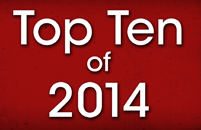Articles by Category
Articles by Issue
Recent Comments
- Stephen Brodsky on Harming Children: Uncovering and Overcoming Bias When Defending Sex Crimes Against Children
- Laura on Courtroom Attire: Ensuring Witness Attire Makes the Right Statement
- Members selection — Court-Martial Trial Practice Blog — February 22, 2014 on Why Do We Ask Jurors To Promise That They Will Do the Impossible?
- Video: Pryor Greed and Lawyers | Parents Rights Blog on Ethical Issues in Racial Profiling
- On the relationship between ideological and demographic diversity on Inaccuracy in Political Self-Perception: Young Adults Are Not as Conservative as They Believe
- Taylor Bishop on Tips for Preparing the Expert Witness
- Thanks for stopping by…. « The Jury Room on Book Review- Social Media as Evidence: Cases, Practice Pointers, and Techniques
- Thanks for stopping by…. « The Jury Room on Book Review: The Juror Factor: Race and Gender in America’s Civil Courts
Case Preparation and Presentation Archive
-
The Psychology of a Persuasive Settlement
by Ken Broda-Bahm, Ph.D.Posted on February 27, 2015 | 9 CommentsWhy doesn't the other side want to settle? Let Ken Broda-Bahm show you just some of the reasons. -
Racial Disparities in Legal Outcomes: On Policing, Charging Decisions, and Criminal Trial Proceedings
by Samuel R. Sommers, Ph.D. and Satia A. MarottaPosted on February 27, 2015 | 2 CommentsThis is a must-read article. We broke our own rule about never doing reprints so we could bring you this piece on all the ways racial bias makes the legal system go wrong. -
Top Ten Most Accessed Articles in 2014
by Jury Expert Editorial StaffPosted on February 27, 2015 | No CommentsWhat did your friends and colleagues read most often in 2014 in The Jury Expert pages? Take a look and make sure you are keeping up! -
“Mea Culpa” in the Courtroom: Apology as a Trial Strategy
by Kevin Boully, Ph.D.Posted on February 27, 2015 | 2 CommentsHere's a review of the literature on apology. What makes a good apology in the courtroom? Ask Kevin Boully. -
Does Video Image Size Affect Jurors’ Decisions? A Look at How Image Size Interacts with Evidence Strength, Defendant Emotion and the Defendant/Victim Relationship
by Wendy P. Heath, Ph.D. and Bruce D. Grannemann, M.A.Posted on November 26, 2014 | 9 CommentsWendy Heath and Bruce Grannemann ponder how video image size in the courtroom is related to juror decision-making about your case. They discuss how image size interacts with image strength, defendant emotions, and the defendant/victim relationship. -
Moral Outrage Drives Biases Against Gay and Lesbian Individuals in Legal Judgments
by Sarah E. Malik and Jessica M. Salerno, PhDPosted on November 26, 2014 | 3 CommentsYou may not be surprised to hear there is bias against young GLBT defendants in court but you may be surprised at the reason behind that bias: moral outrage. In this brief research report, we hear about two studies (one on the gay panic defense and one on juvenile sex offender registration) and hear reactions from trial consultants. -
Anti-war Protestors and Civil Disobedience: A Tale of Two Juries
by Lynne Williams, Ph.D., J.D.Posted on November 26, 2014 | 4 CommentsHow do you choose a jury for a antiwar protestor trial versus a jury for a civil disobedience trial? An experienced trial consultant offers a peek into her brain as she chooses two very different juries. -
The Selective Allure of Neuroscience and Its Implications for The Courtroom
by Adam B. Shniderman, Ph.D.Posted on November 26, 2014 | 2 CommentsNeuroscience evidence is not alluring to everyone. Just to some. Thorough voir dire becomes critically important to the attorney who wants to understand those composing a jury. -
Promoting Communications between Social Scientists and Lawyers
by Ronald K. Bullis, Ph.D., J.D.Posted on November 26, 2014 | 1 CommentLawyers and social scientists. Different professions. Different languages. Different professional cultures. How do you talk so your social science expert witness understands you? -
Demographic Roulette: What Was Once a Bad Idea Has Gotten Worse
by Douglas L. Keene, Ph.D. and Rita R. Handrich, Ph.D.Posted on August 20, 2014 | 9 CommentsAuthored by Doug Keene and Rita Handrich with a response from Paul Begala, this article takes a look at how the country has changed over the past 2 decades and our old definitions of Democrat or Republican and conservative or liberal are simply no longer useful. What does that mean for voir dire? What should it mean for voir dire? Two very good questions those.









